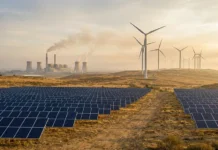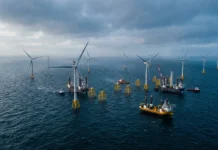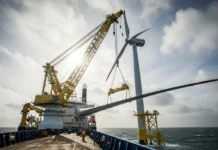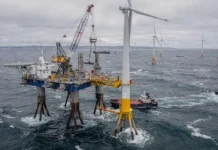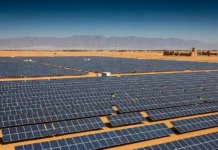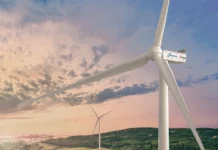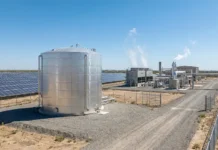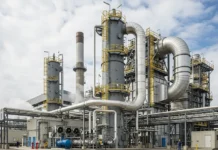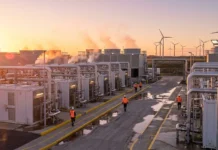Commenting on the publication of the 3rd UN Intergovernmental Panel on Climate Change report, which calls for a shift away from fossil fuels to focus instead on developing renewable energy sources,
RenewableUK’s Deputy Chief Executive Maf Smith said:
“When it comes to taking practical action against carbon emissions, the most useful tool in the kit is wind energy. It’s the most developed renewable technology we have, providing more than half the low-carbon electricity we generate in the UK. We’ve now installed more than 10 gigawatts onshore and offshore – that’s enough to power more than 6 million homes, saving more than 11 million tonnes of carbon emissions a year.
“We installed nearly 5 gigawatts between 2000 and 2010, showing that at a time when global carbon emissions were rising fast, the UK was expanding its wind energy fleet rapidly to play its role in mitigating the effects of climate change. That’s why the Department of Energy and Climate Change said last month that the UK’s carbon emissions fell between 2012 and 2013 – and they cited our switch in electricity generation away from fossil fuels as the key factor driving that change.
“It’s also worth remembering that onshore wind is the lowest cost clean source we have in abundance – cheaper than other renewables and new nuclear. Wind ticks all the boxes in terms of affordability and low-carbon credentials, as well as providing us with home-grown energy security”.



